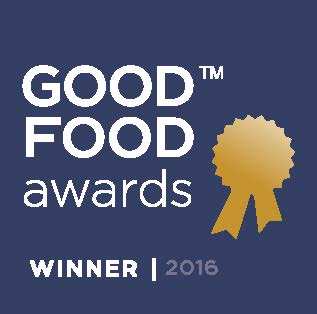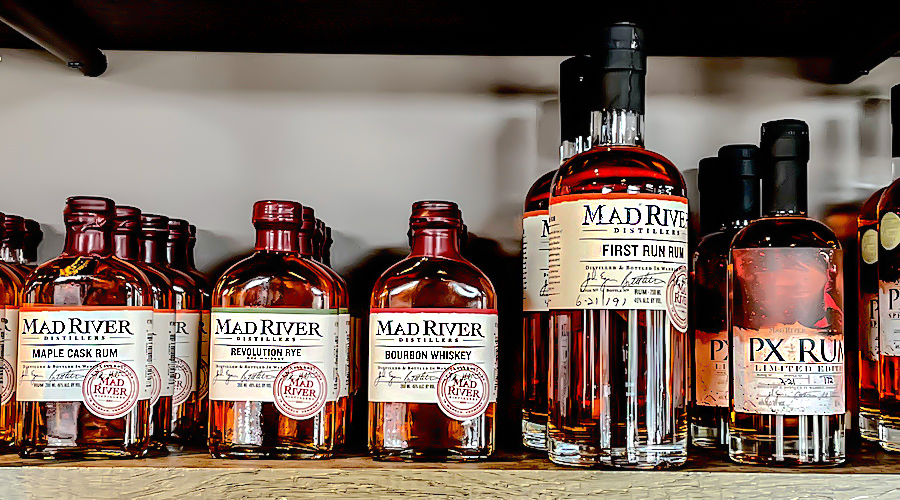What is a Control State?
If you’re a purveyor of alcohol—whether beer, wine or liquor—then you may have heard of the term “Control State.” What exactly does that mean? Well, it’s not a nod to the government-controlled dystopian society in George Orwell’s 1984.
After Prohibition was abolished in the United States in 1933, the sale and distribution of alcohol fell to each individual state. Each state determines whether the local government will control the sale and distribution as an ABC (Alcohol Beverage Control) state, or allow those activities to happen through private retailers.
There are currently 17 ABC (or “Control States”) in the U.S., which fall into two general buckets—states that “own all of the liquor stores, and those that control distribution to private retailers (Mancall-Bitel, 2018).” This control through government agencies is at the wholesale level, but in 13 of the states, that control extends to “retail sales for off-premises consumption” (Control State Directory and Info | National Alcohol Beverage Control Association, n.d.).
An example of retail sales for off-premise consumption would be a “package store”, which you would find in states like New Hampshire, Utah and Virginia (among others). Of the 17 ABC states, 7 fall into the first bucket, where liquor stores are owned directly by the state. The remaining 10 states (including Vermont) fall into the second bucket, where the state sets the minimum costs for a customer (Mancall-Bitel, 2018).
A spirits brand in a non-ABC state might be sold in a variety of locations. With increased access, there is increased competition and, typically, lower prices. A spirits brand in a control state must only sell through state stores where the prices of alcohol are dictated by the state, instead of being dictated by a free market.
Even among ABC states, the location where liquor is offered may vary. For example, both Vermont and New Hampshire are control states, but Vermont spirits are sold through agents from whatever type of store they operate (such as convenience stores, stand-alone stores that sell spirits, or even some grocery stores). In New Hampshire however, stores are owned directly by the state—you cannot purchase through a convenience store (Control State Directory and Info | National Alcohol Beverage Control Association, n.d.).
Given the variety of laws pertaining to alcohol across the United States, and the complexity of navigating them, it’s easy to see how distribution of craft spirits across state lines can be a complicated matter. And if you live in a control state, it explains why there may be fewer options on your local liquor store shelves.
So why do we have control states?
Well, they were intended to stave off public health concerns, such as alcoholism. We’ve all heard the phrase “drink responsibly,” a reminder for moderation. In an ABC state, the government moderates access and cost in an effort to mitigate the effects on public health. There are no marketing initiatives such as sales, discounts or limited time offers to encourage purchase (Control State Directory and Info | National Alcohol Beverage Control Association, n.d.). Additionally, and significantly for some states, sales benefit a state fund. For example, the net revenue on alcohol sales in Vermont helps to “fund state government operations and support government programs, including those for the treatment of alcoholism and chemical dependency” (State of Vermont Department of Liquor and Lottery, 2021).
The impact for Mad River Distillers
If you’re in Vermont, Mad River Distillers spirits can only be found in state stores that act as independent agents, as well as our distillery in Warren, the Mad River Taste Place in Waitsfield, and our Burlington Tasting Room location. The state controls retail, and ships product to state stores (or independent agents), who can then sell to consumers, bars and restaurants. If you’re located outside of Vermont, you may or may not be able to purchase our spirits online, depending on your state laws.
In addition to mitigating alcohol abuse and providing for Vermont’s General Fund, there are other benefits to producing spirits in a control state like Vermont.
“As an in-state manufacturer, we are able to work with the state to promote Vermont-made spirits in 802 Spirits stores. Vermont has 77 agency stores, and through the state listing process we can access all of them with our products. In non-control states, every liquor store must be approached individually. We must sell enough products throughout the state to maintain our listings, but the initial distribution and opportunity that a control state like ours offers to in-state manufacturers is an incredible resource to our brand.”
Mimi Buttenheim, President of Mad River Distillers
There are pros and cons to any system, but for Mad River Distillers, manufacturing our line of spirits in a Control State, that has provided distribution access across the state, has been really valuable. Distributing beyond the state is where things get a little more complicated, but we're up to the challenge. As you travel across state lines, you'll now have a better understanding of what you're seeing on the liquor store shelves, and where. If you live outside of Vermont and are wondering where to buy our spirits, visit our BUY page to learn more.
Written and published by Brianne Lucas on August 30, 2021.
References
Mancall-Bitel, N. (2018, April 26). State Owned Liquor Stores, Explained. Thrillist. https://www.google.com/amp/s/www.thrillist.com/amphtml/culture/state-owned-liquor-stores
Control State Directory and Info | National Alcohol Beverage Control Association. (n.d.). National Alcohol Beverage Control Association. Retrieved August 27, 2021, from https://www.nabca.org/control-state-directory-and-info
State of Vermont Department of Liquor and Lottery. (2021, January). Vermont Department of Liquor and Lottery 2020 Annual Report. https://liquorandlottery.vermont.gov/sites/liqlot/files/documents/Annual_Reports/2020_Annual_Report.pdf





